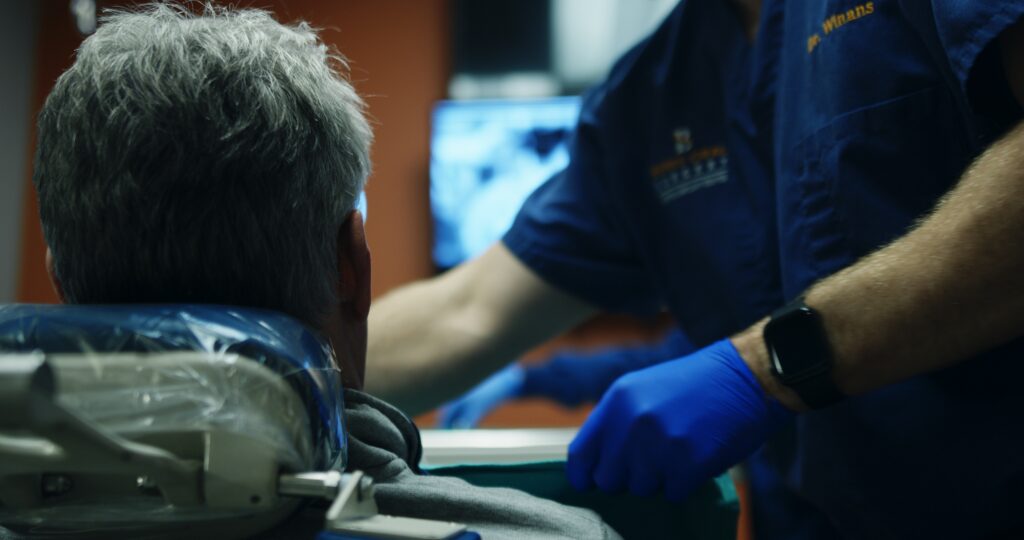Snoring Is Not Always A Symptom Of Sleep Apnea
It is important to determine whether you are snoring or suffering from obstructive sleep apnea (OSA). It’s estimated that approximately 30%-50% of the US population snores, a breathing obstruction that occurs when excessive tissues of the soft palate vibrate due to the movement of airflow during sleep. Your surgeon can help determine if your snoring issues are actually a symptom of sleep apnea.
Snoring that is not associated with sleep apnea can still be concerning, as it can cause sleep disturbances for you and your spouse. Various treatment options are available to help reduce snoring, which include:
- Weight loss
- Changing your sleeping position
- Avoiding alcohol, caffeine, and heavy meals within two hours of bedtime
- Avoiding sedatives
If these modifications are unsuccessful, an oral appliance (mandibular repositioning device) can treat snoring and mild sleep apnea. In certain situations, surgical procedures can be beneficial when non-surgical efforts are unsuccessful in snoring reduction. Your surgeon will help you determine the best treatment option.
Sleep Apnea
Unlike snoring, obstructive sleep apnea (OSA) is a potentially life-threatening condition that requires medical attention. The risks of undiagnosed OSA include heart attack, stroke, irregular heartbeat, high blood pressure, heart disease, and decreased libido. The excessive daytime sleepiness caused by OSA is also a concern, as it can result in accidents, lost productivity, and interpersonal relationship problems.
Symptoms Of Sleep Apnea
- Snoring with pauses in breathing
- Excessive daytime sleepiness
- Restless sleep
- Memory loss
- High blood pressure
- Nighttime chest pain
- Depression
- Problem with excess weight
- Large neck circumference
- Morning headaches
- Reduced libido
If you exhibit several OSA symptoms, you should visit one of our doctors for a complete examination and diagnosis. A sleep study (polysomnography) may be necessary to accurately diagnose your condition.
Treating Sleep Apnea
There are several effective treatments for OSA. Depending on the severity of your condition, your doctor will select the approach that is best for you. An initial treatment may consist of using a nasal CPAP machine that delivers pressurized air through a nasal mask. Some patients with mild forms of OSA can be treated with a customized oral appliance that brings your lower jaw and tongue forward. This results in better breathing while you sleep.
Patients that are not effectively treated with nasal CPAP may be candidates for surgical treatment. Your surgeon will discuss treatment options based on your clinical exam, x-rays, and information from your sleep study.
OSA is a very serious condition that needs careful attention and treatment. Most major medical plans offer coverage for diagnosis and treatment.
Berks Oral Surgery Can Help You With Snoring And Sleep Apnea!
Both snoring and sleep apnea can impact your health and quality of life, with sleep apnea posing significant risks to your well-being. If you would like to find out more about our services, please call Berks Oral Surgery at 610-374-4093.

